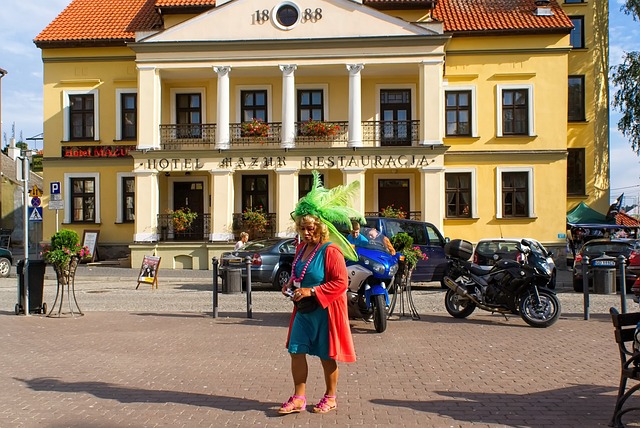
First off, think about how AI sifts through mountains of data faster than you can say “book my stay.” It analyzes trends, occupancy rates, local events, and even competitor pricing to predict demand. Picture it as a highly skilled detective, constantly gathering clues to form the best pricing puzzle. With machine learning algorithms, AI can spot patterns and forecast price changes, ensuring you set the right rate at the right time. Ever wondered why your favorite hotel seems to know exactly when to offer that sweet last-minute deal? Yep, it’s all thanks to AI.
Furthermore, AI doesn’t just optimize prices; it personalizes them too. Imagine you’ve stayed at a hotel before. AI remembers your preferences—room type, amenities, and even your favorite coffee. It can leverage this info to tailor offers that resonate with you. It’s like having a personal concierge, beckoning you with deals so irresistible that turning them down feels like passing up dessert at your favorite restaurant.
Moreover, with feedback and review analysis, AI helps hotels adjust their pricing strategies based on guest satisfaction. If a particular room is getting rave reviews, prices can be adjusted to reflect its value. It’s akin to hitting the jackpot; you get the best experience at just the right price.
Unlocking Profit Potential: How AI is Revolutionizing Dynamic Pricing in the Hotel Industry
Dynamic pricing is about adjusting prices in real-time, and AI is the secret sauce behind this transformation. Picture it as a smart companion that analyzes mountains of data—think demand fluctuations, customer behaviors, and even local events. With this treasure trove of information, AI can predict the best rates that maximize occupancy and revenue. It’s like having a seasoned negotiator who knows exactly when to hold firm and when to make that tempting offer.
Have you ever noticed how hotel rates can jump from one minute to the next? That’s dynamic pricing in action! AI algorithms monitor everything from competitor pricing to weather forecasts, making it easier for hotels to respond to market changes. Let’s paint a picture: say there’s a big concert in town. An AI system picks up on the surge in demand, nudging the hotel to raise rates slightly, capitalizing on that hunger for a place to stay. It’s smart, responsive, and downright strategic.
But here’s where it gets even cooler. AI doesn’t just set prices; it personalizes them. Ever browsed for a hotel, only to find your friend got a better price for the same room? AI tools analyze user data, offering customized rates based on past bookings and preferences. It’s like having a personal shopper for hotel deals, making you wonder—who doesn’t love a good bargain?

So, while you enjoy your stay, AI works behind the scenes to ensure hotel owners and guests alike find that sweet spot in price, making every click feel like a little victory. This isn’t just innovation; it’s a full-on revolution!
Smart Strategies: The Role of AI in Shaping Tomorrow’s Hotel Pricing Models
First off, think about dynamic pricing – it’s like when you shop for flights, and the price suddenly jumps! AI tools analyze countless data points, such as booking dates, regional events, and even weather forecasts, to adjust hotel prices in real-time. This isn’t just guesswork; it’s precision pricing tailored to maximize occupancy and revenue. Wouldn’t you prefer a price that reflects the value of the experience you’re going to have rather than a flat rate that ignores market trends?
Moreover, AI empowers hotels to understand their guests better than ever. Imagine a system that learns your preferences and suggests room upgrades or experiences based on your past stays. It’s like having a personal concierge who knows you inside out! This personalized approach not only enhances the guest experience but also encourages loyalty. When guests feel valued, they keep coming back, and that’s music to a hotel’s ears!
And let’s not forget about predictive analytics. With cutting-edge algorithms, hotels can foresee future trends and adjust their pricing models accordingly. This isn’t just about reacting to the market; it’s about staying one step ahead. If a major conference is coming to town, AI can signal a price bump long before the event starts, ensuring hotels make the most of their potential bookings.
In short, as AI continues to evolve, so will the way hotels price their offerings. It’s a game-changer that turns ordinary stays into extraordinary experiences! Just imagine booking your next getaway with the assurance that you’re getting the best deal, tailored just for you. Wouldn’t that be a breath of fresh air?
Dynamic Pricing Redefined: AI-Powered Insights for Maximizing Hotel Revenue
Picture this: You’re a hotel manager, and it’s a sunny Saturday in July. Families are flocking to the beach, and your rooms are filling up. AI swoops in, crunching data from your last few weekends, nearby hotels, and social media trends, suggesting you bump your rates. But wait, it’s not just about ramping prices up; on a rainy Tuesday when bookings are slow, AI advises a temporary discount to lure in those last-minute travelers. It’s like having a personal assistant who knows when to sell high and when to entice with discounts.
What’s even cooler? AI isn’t just looking at numbers; it’s understanding them. It learns from consumer behavior, adapting and evolving its strategies. Think of it as a dance partner that notices your every step and adjusts to keep the rhythm flowing. With AI-powered insights, hotels can maximize profits while still offering guests fair rates that resonate with their wallets.
How AI is Transforming Hotel Pricing: The Future of Dynamic Revenue Management
So, how does this all work? Picture AI as a super-smart friend who knows just the right moment to swing by your favorite restaurant to snag a table or catch a concert ticket right before they sell out. For hotels, AI algorithms sift through heaps of data—from competitor rates to weather forecasts—to optimize pricing like never before. One moment, you might see a lovely discount on a cozy suite, and the next, the price adjusts because a big conference just booked hundreds of rooms. It’s all about maximizing occupancy and revenue, and AI is the magic wand that makes it happen.
Let’s talk about personalization, too. Remember how Netflix seems to know you better than your closest pals? Hotel AI does the same! By analyzing guest preferences and booking behavior, these systems can suggest tailored offers, making guests feel like rock stars. Imagine receiving a text saying “Hey, we’ve got a special rate just for you!” before your next stay. That’s AI charm in action!
Now, combine that with predictive analytics, and you’ve hit the jackpot. By forecasting demand trends—like busy weekends or sporting events—hotels can adjust their pricing strategies proactively. This eye on the future helps minimize empty rooms and maximize profits, all while keeping customers happy with attractive pricing options.
From Algorithms to Occupancy: How AI Optimizes Hotel Pricing Strategies
Let’s break it down. At the heart of AI’s prowess is its ability to analyze heaps of data faster than you can say “vacation deal.” Think about it: prices fluctuate based on demand, seasonality, and even local events. AI algorithms sift through this mountain of information, like a seasoned detective searching for clues to the best pricing models. They monitor booking trends, competitor rates, and guest preferences, bringing all the puzzle pieces together to craft the perfect price tag.
But it doesn’t stop there! With AI, hotels can implement dynamic pricing, which is like having a personal shopper for your wallet. Instead of fixed rates, prices adjust in real-time. If there’s a concert or a big conference in town, those room rates may skyrocket. Conversely, if occupancy seems low, the AI can drop the price, making those unsold rooms more appealing. It’s akin to being in a marketplace: prices ebb and flow based on current demand.
Navigating the Demand: AI Techniques for Effective Dynamic Pricing in Hotels
So, how does it work? Think of it as a smart, invisible assistant continuously analyzing data. Just like a stock market trader watches fluctuations to buy low and sell high, AI algorithms monitor various factors—like occupancy rates, seasonality, and competitors’ pricing—to adjust room rates dynamically. This means hotels can maximize revenue while ensuring they’re not leaving money on the table.
Let’s put this into perspective. Picture a hotel facing a sudden surge in tourists for a local event. With traditional pricing strategies, they might miss that opportunity to raise rates. But with AI-driven models, the price can soar like a rollercoaster, matching the demand instantly. And what about the quieter seasons? AI swoops in with lower rates, enticing guests to fill those vacant rooms.
But it doesn’t stop there. AI can personalize offerings based on customer behavior. Have you ever noticed how your favorite hotel seems to know exactly what you want? That’s data working its magic! By analyzing past bookings and preferences, hotels can tailor their pricing and packages specifically for you. It’s like having a personal concierge, but for your wallet.
In this fast-paced digital age, embracing AI for dynamic pricing isn’t just smart—it’s essential for staying ahead in the game. With the right tech, hotels can ride the waves of demand instead of getting swept away!
Frequently Asked Questions
What Benefits Does AI Offer for Hotel Revenue Management?
AI enhances hotel revenue management by optimizing pricing strategies, forecasting demand with greater accuracy, and providing insights into market trends. It automates data analysis, enabling personalized marketing, reducing operational costs, and ultimately maximizing profitability.
What Challenges Do Hotels Face When Implementing AI for Pricing?
Hotels encounter several challenges when integrating AI for pricing strategies. These include data quality and integration issues, the need for robust algorithms to analyze market trends, resistance to change from traditional pricing methods, and potential concerns over customer perceptions of AI-driven pricing. Additionally, maintaining competitiveness in real-time pricing while ensuring profitability can add complexity to implementation.
What is AI’s Role in Dynamic Pricing for Hotels?
Artificial intelligence enhances dynamic pricing for hotels by analyzing vast amounts of data, including demand trends, competitor prices, and customer behavior. This technology allows hotels to adjust their rates in real-time, optimizing revenue and occupancy levels based on market conditions and guest preferences.
How Does AI Analyze Market Trends for Hotel Pricing?
AI leverages data analytics and algorithms to assess market demand, competitor pricing, and consumer behavior. By processing historical data and real-time information, it identifies patterns and predicts future pricing trends. This enables hotels to dynamically adjust their rates, optimize occupancy, and enhance revenue management.
How Can AI Improve Competitor Price Comparison?
AI enhances competitor price comparison by automating data collection from various sources, analyzing price trends, and identifying optimal pricing strategies. It provides real-time insights, enabling businesses to adjust their pricing dynamically, stay competitive, and maximize profit margins.